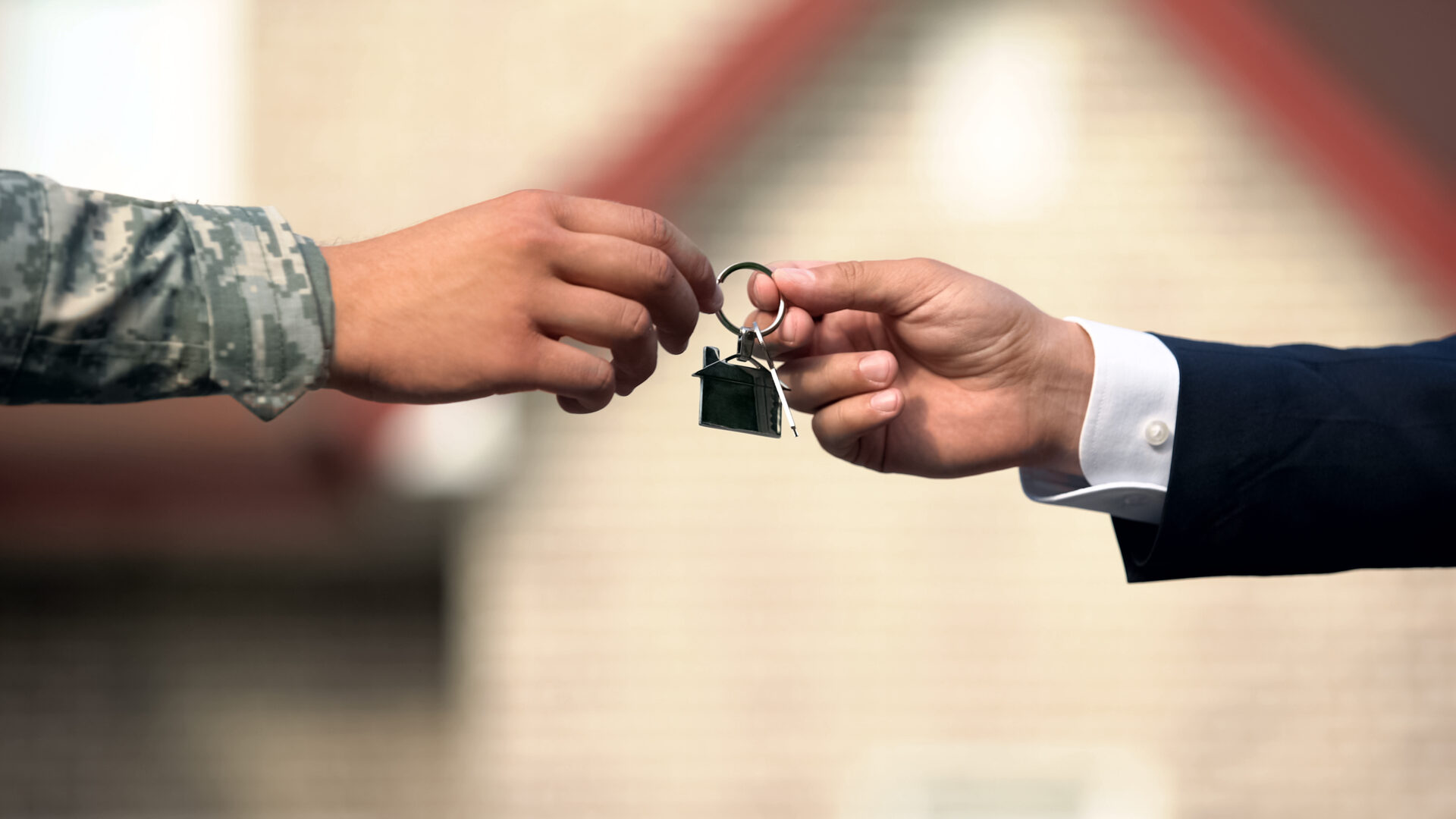VA Entitlement Explained: Basic & Bonus Loan Entitlements

There are many different aspects of VA loans that you should understand before entering into a loan agreement, one of which is VA entitlement. The VA entitlement is the amount of a home loan the Department of Veteran Affairs (VA) will cover if you default on your loan. Essentially, this is the amount the lender can count on recouping if you can’t uphold your loan terms. The basic VA entitlement is 25% or $36,000, however, the amount of entitlement you are awarded depends on a variety of factors, and is often much higher nowadays.
While that’s the simplified explanation, there is much more to VA loan entitlement, including how it’s determined, how much an entitlement amounts to, and how the amount of your VA entitlement impacts your loan. In this post we’ll cover the basics of VA entitlement and how it applies to borrowing with a VA home loan, so you can more confidently navigate the loan application process.
What Is VA Loan Entitlement?
VA loan entitlement is a benefit provided to military members and their families to help them purchase a home. The VA loan entitlement is a guaranteed amount that the VA will cover if you default on the loan. This guaranteed backing by the VA provides a level of insurance to the lender that is not provided with other types of home loans. As such, you are able to qualify for much better terms by using a VA loan, such as no down payment, lower interest, and no private mortgage insurance.
There are some common misconceptions about what a VA entitlement is. Some people may assume that it is how much you can borrow in total or how much the VA pays out to the borrower to then use towards their VA loan. However, it is neither. The VA loan entitlement is the amount of money the Department of Veteran Affairs will guarantee on a VA home loan, without a down payment.
It is important to note that if your desired home exceeds the loan limits, you will need to provide a down payment because the loan is not sufficiently guaranteed to the lender with just the entitlement. The amount of down payment that’s required will depend on several factors including the cost of the home, your income, and your credit score.
How Is VA Loan Entitlement Determined?
VA entitlement amount is determined by several factors:
- The cost of the home
- The amount of the loan
- The loan limit that applies to the region the home is being purchased
Your Certificate of Eligibility (COE) from the VA is the document that is provided to the lender as proof that you are eligible for VA entitlement (which acts as a guarantee to your lender). However, just because you are eligible for VA entitlement doesn’t mean that you are automatically qualified to receive a home loan.
In order to use your VA entitlement, you first meet the eligibility guidelines of the VA (visit VA.gov to learn more) as well as the VA loan requirements of your mortgage lender. These requirements may include but are not limited to the terms of your service, your credit history, and your debt-to-income ratio. When you apply for your VA loan, your lender can help you retrieve your COE and will evaluate your financial information to determine your eligibility for a VA home loan.

Types of VA Loan Entitlement
There are two tiers of VA loan entitlement: basic and bonus entitlement. In today’s housing market, you will typically need to use both, at least in part, in order to qualify for a home with no down payment.
Basic Entitlement
Traditionally, a VA loan basic entitlement of 25% of the loan amount for loans up to $144,000. This would be $36,000 that’s guaranteed by the VA if you default on the loan.
While a basic entitlement is sufficient in some places, in many instances, the cost of homes has increased substantially. According to Zillow, the median home cost in the U.S. is nearly $250,000. However, many states that have the highest active-duty military populations include California, Hawaii, Washington, and Texas—all of which have much higher average home costs. Due to rising property values, a VA bonus entitlement was established.
Bonus Entitlement
Bonus entitlement is a second tier of entitlement that makes it possible for veterans to purchase higher-priced homes in states like those mentioned above, or popular growing cities. The VA bonus entitlement helps cover loans over $144,000, up to the conforming loan limit ($766,550). That said, as of 2020, the VA has established that, if you still have your full entitlement intact, the loan limits no longer apply to you.
If the loan limits do apply to you because you haven’t fully restored your entitlement, you should note that loan limits vary depending on the cost of housing in a specific county. To find out what the loan limit is for the county you’re looking to buy in, check the 2024 loan limit list.

What Is Remaining Entitlement?
Remaining entitlement simply refers to the amount of “unused” entitlement you have left over after you’ve purchased a home using your VA benefits.
Let’s break this concept down with an example
With your bonus entitlement, the VA will cover up to $127,000 for VA home loans (.25 x $510,400). So, if you purchase a home for $300,000, you would have only used $75,000 of your entitlement (.25 x $300,000). This would make your remaining entitlement $52,000 ($127,000 – $75,000).
It should be noted that, just because you don’t use the full amount of your entitlement when you purchase a home, doesn’t mean that you are able to use the rest of it to purchase another home—there are restrictions that apply to how your VA entitlement can be used.
Using Second-Tier Entitlement
A second-tier entitlement is what you would use if you need a second VA loan. While having dual VA loans is not the standard, there are certain circumstances where borrowers can take advantage of this option.
One of the exceptions for using second-tier entitlement is required relocation. If you are required to relocate for duty, you can use your remaining entitlement to take out a second VA home loan.
The biggest risk with using second-tier entitlement to keep your other residence is that you will have two consecutively running mortgages that you are responsible for. While you may decide to rent out your first home, you still run the risk of vacancies or tenants who fail to pay. In the meantime, you will have to compensate for this lost income and cover both mortgages.
Another instance where you may need to use your second-tier entitlement is if you have previously foreclosed on a VA home loan. While you might think that a foreclosure could bar you from qualifying for another home loan for a long time, Griffin Funding allows for reduced seasoning on recent credit events—including foreclosures. This means that you won’t have to wait as long to qualify for a new VA home loan.
If you are considering taking advantage of your ability to use second-tier entitlement, it’s important to carefully consider the risks and have a contingency plan in place so you don’t default on your home loans.
Restoring Your VA Entitlement
VA loans are a service benefit that you can reuse over and over again throughout your lifetime. If you don’t qualify for second-tier entitlement, you will need to restore your VA entitlement before you can purchase another home.
You can restore your VA entitlement by:
- Paying off the remaining balance of your VA home loan by selling the home
- Transferring the remaining balance to another VA-eligible borrower by selling your home
- Refinancing your home with a conventional home loan
In addition to these options, there is also a one-time exception that allows you to restore your VA entitlement and keep the property if it is fully paid off. You may want to take advantage of this option if you have a family home that you simply can’t part with but no longer want to use the property as your primary residence.
Note that if you are considering selling your current home and purchasing a new one because you can’t afford the mortgage, you may first want to consider a VA refinance loan. Refinancing with a VA IRRRL (interest rate reduction refinance loan) or VA cash-out refinance loan can lower your interest rate and monthly payment, making your mortgage more affordable.
Learn More About VA Home Loans & Apply Today
If you still have questions about other aspects of VA home loans, our loan specialists are happy to help provide clarity and walk you through the process. When you are ready to apply for a VA home loan, Griffin Funding is ready to help, with competitive interest rates, streamlined processes (we can usually complete the approval process within 30 days or less), and mortgage programs designed for a diverse range of borrowers. We are proud to work with veterans and active military members to make their dreams of home ownership a reality.
Find the best loan for you. Reach out today!
Get StartedRecent Posts
Conventional Loan Limits in 2025
If you plan to purchase or refinance a home in the coming year, understanding the conventional loan limits in ...
Current Mortgage Rates
What Affects Mortgage Rates? Mortgage rates fluctuate constantly based on a variety of economic variables and ...
Mortgage Refinance Limits
Your Refinancing Options Most owners have several refinancing pathways depending on their financial goals and ...



